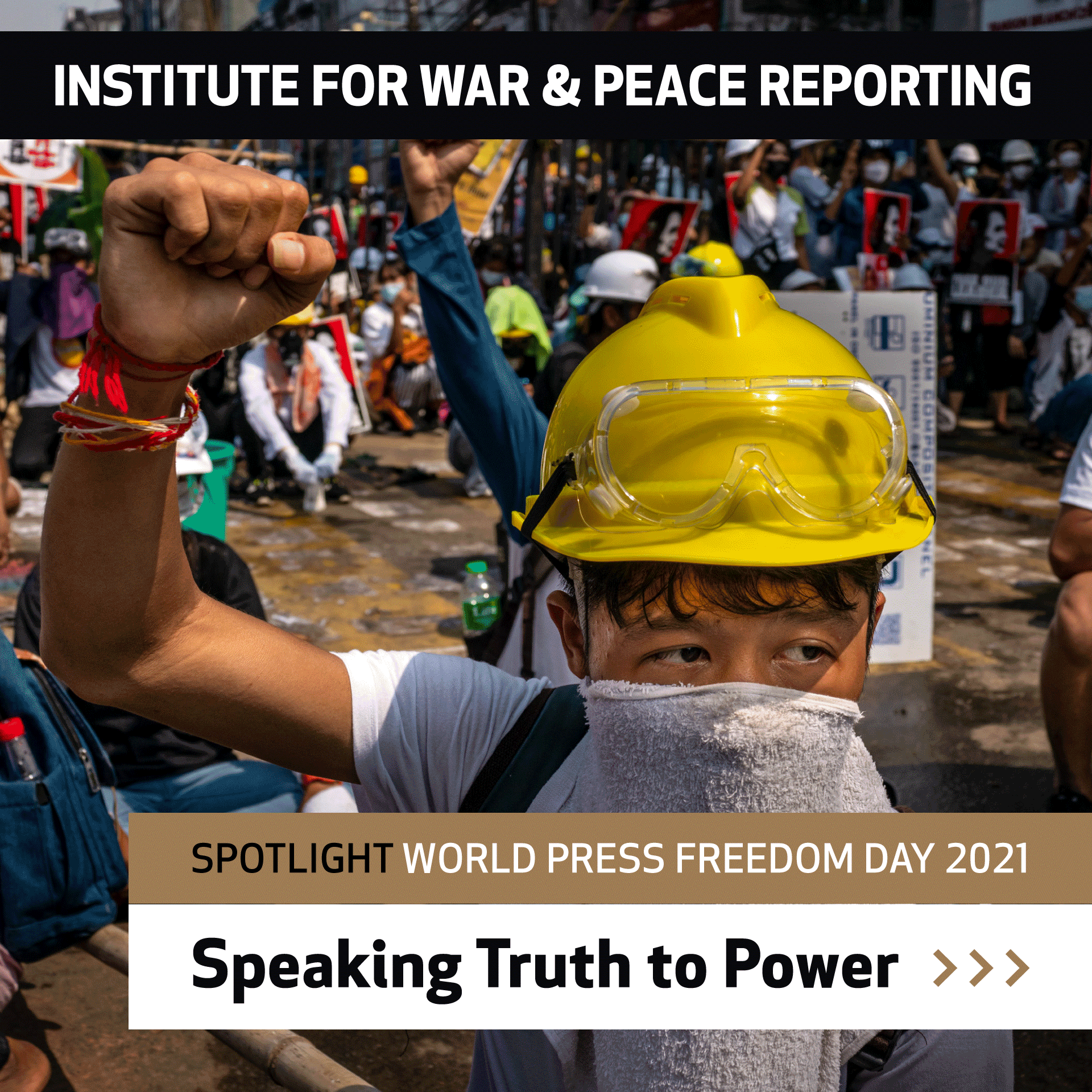Local Media Struggles in Georgia’s Conflict Zones
Experts fear that the Covid-19 crisis may deal a fatal blow to some independent outlets.
Local Media Struggles in Georgia’s Conflict Zones
Experts fear that the Covid-19 crisis may deal a fatal blow to some independent outlets.
Journalists working in Georgia’s conflict zones warn that the pandemic may have an enduring impact on their efforts to cover some of the country’s most marginalised communities.
With freedom of movement already restricted in and around Abkhazia and South Ossetia, Covid-19 closures made it even harder for journalists to continue reporting.
“2020 was a very difficult year, especially for journalists. They had to be on the front line in order to provide us with necessary information about Covid-19.”
“When the roads were closed, it was impossible to get to the villages along the dividing line,” said Saba Tsitsikashvili, head of the Shida Kartli Information Center.
“It’s never easy to get there, but due to the pandemic we could not enter at all. Even if someone needed help, we could only contact them by phone.”
Malkhaz Mikeladze, a reporter from TV Pirveli, said that he had also faced multiple challenges trying to report on the effects of the pandemic on those in the conflict zone.
“When we go to the villages in the conflict zone, the police stop us and ask who we are going to see and what issue we are working on,” he said. “When we say that the journalist is not obliged to inform the ministry of internal affairs about the details of the planned material, the situation gets tense. Once, I was going to the village of Nikozi to film a story, but the police stopped me at the entrance of the village, took my camera, broke my phone, headphones, and damaged my equipment.”
Gvantsa Doluashvili, director of Gori Community Radio Mosaic, said that the pandemic had further isolated an already extremely vulnerable community.
“Restrictions on free movement have been coupled with the risks of infection. Besides, many of these villages have poor internet connection. So, the people living there cannot attend online meetings or programmes discussing various important issues,” Doluashvili said.
The EU Ambassador to Georgia, Carl Hartzell, said that journalists had often risked their own lives while performing their professional duties during the pandemic.
“2020 was a very difficult year, especially for journalists,” he said. “They had to be on the front line in order to provide us with necessary information about Covid-19.”
Ia Tinikashvili, a reporter from PalitraMedia, said that she caught Covid-19 while working on a story. She was hospitalised, underwent three surgeries and is still receiving treatment.
“I believe that the pandemic has taught journalists to be more cautious than we used to be before,” Tinikashvili said.
Experts also fear that the effects of the pandemic will lead to the permanent closure of some independent media outlets. This situation directly affects the quality and frequency of reporting in the country, as well as the number of individuals influenced by propaganda.
Natia Kuprashvili, the head of the Alliance of Regional Broadcasters, said that the crisis had hit local media outlets particularly hard.
“We soon realized that we could not stop working, but our income disappeared instantly. Advertising stopped when the businesses [shut down], but our expenses were increasing. We had to purchase items necessary for working in the pandemic and we had transportation costs as well. We asked the authorities to ease the fiscal policy towards the media, as it happened in many other countries, but our taxing system is quite strict, especially for independent, small media outlets.”
The impact on media capacity has also raised fears about continuing efforts to boost Georgian resilience to propaganda and fake news.
Experts note that the pandemic had been exploited by outside actors as a way of fueling instability and undermining national sovereignty.
“Russian propaganda has one of the key roles in this process,” said Teona Absandze from Georgia’s Reforms Associates (GRASS), which devoted its 2020 annual DisinfoMeter report to pro-Russian, anti-Western disinformation.
“It uses Covid-related disinformation and anti-vaccination campaigns to discredit Western and international health care institutions. In the active phase of the pandemic, the anti-vaccination and disinformation campaigns [undermined] the health and lives of people daily.”

